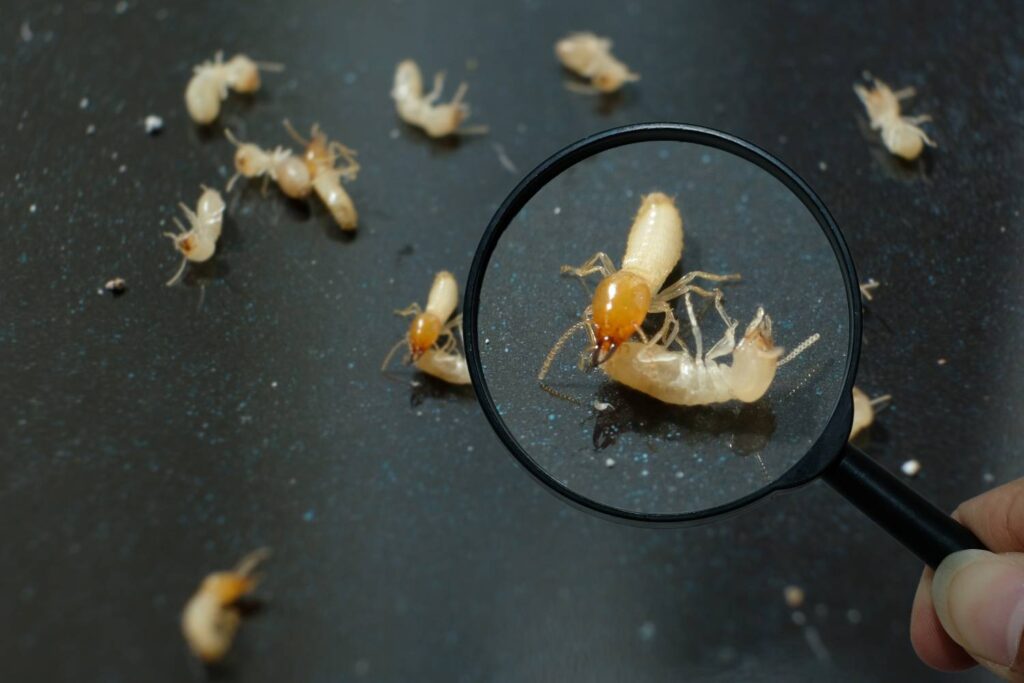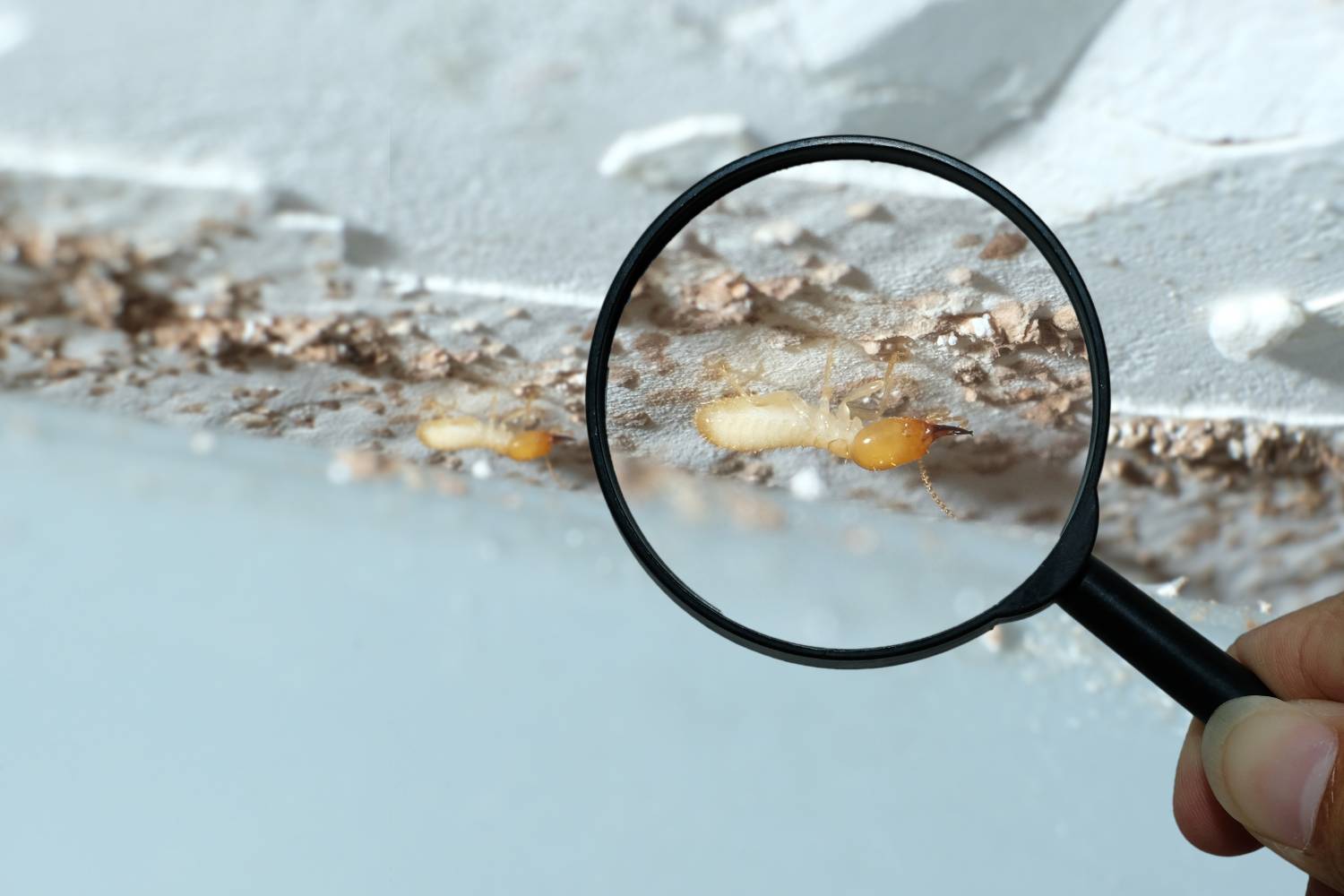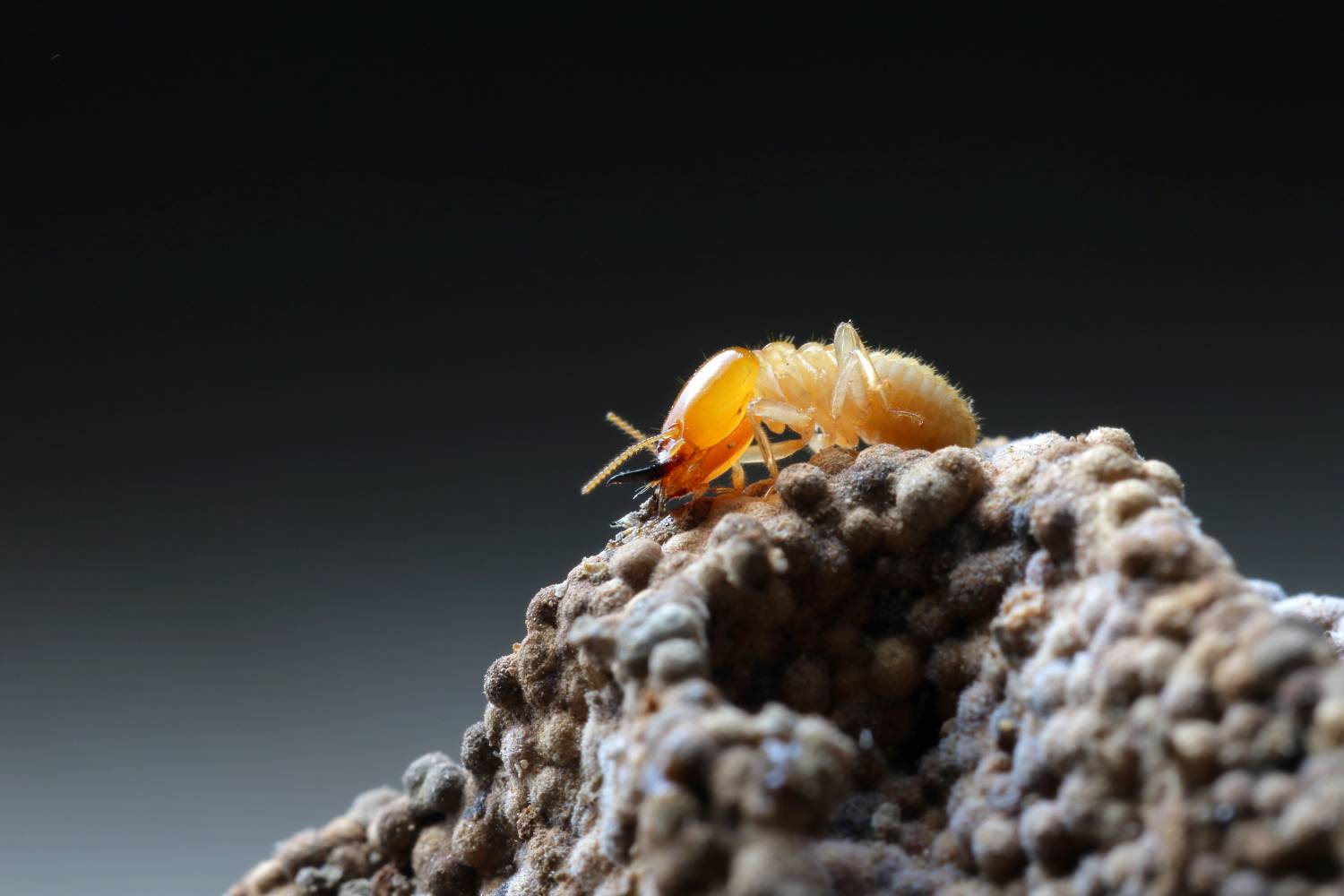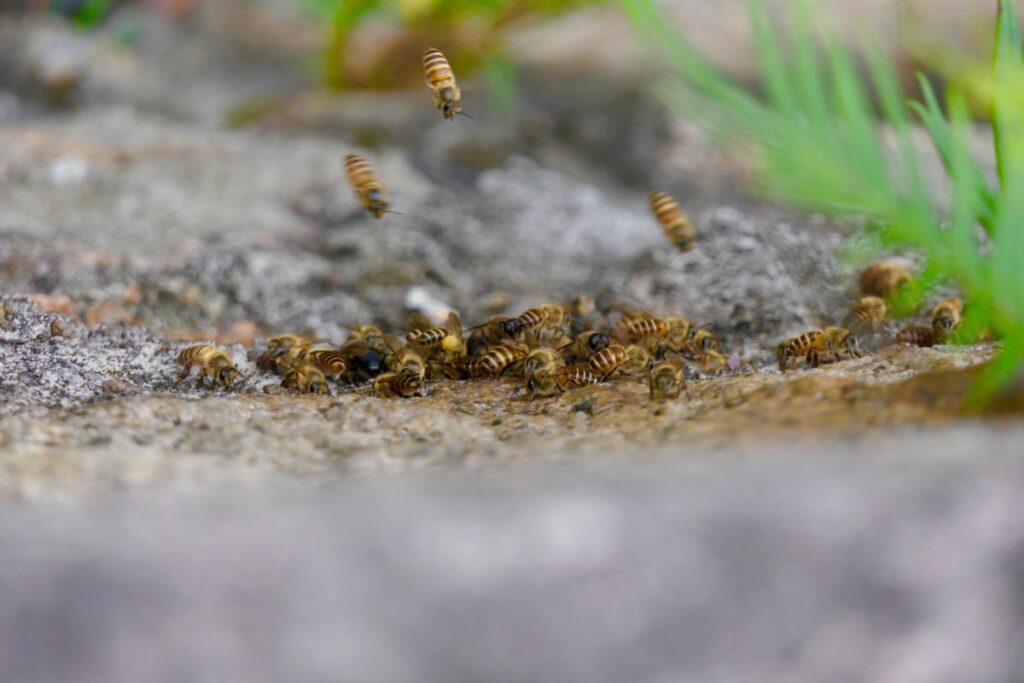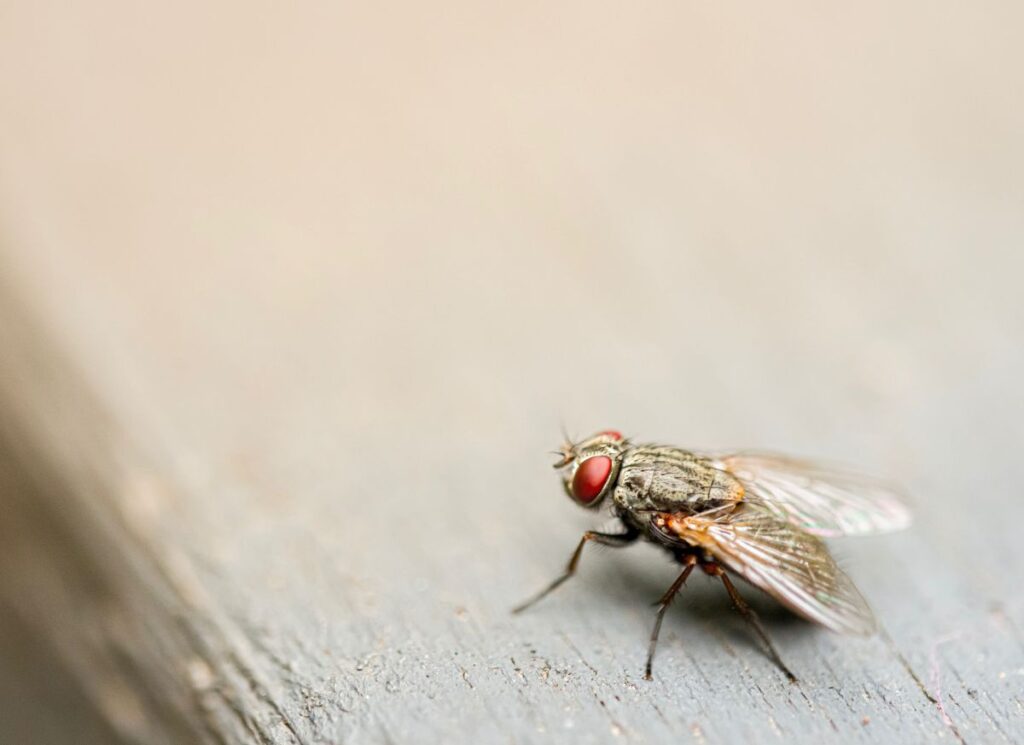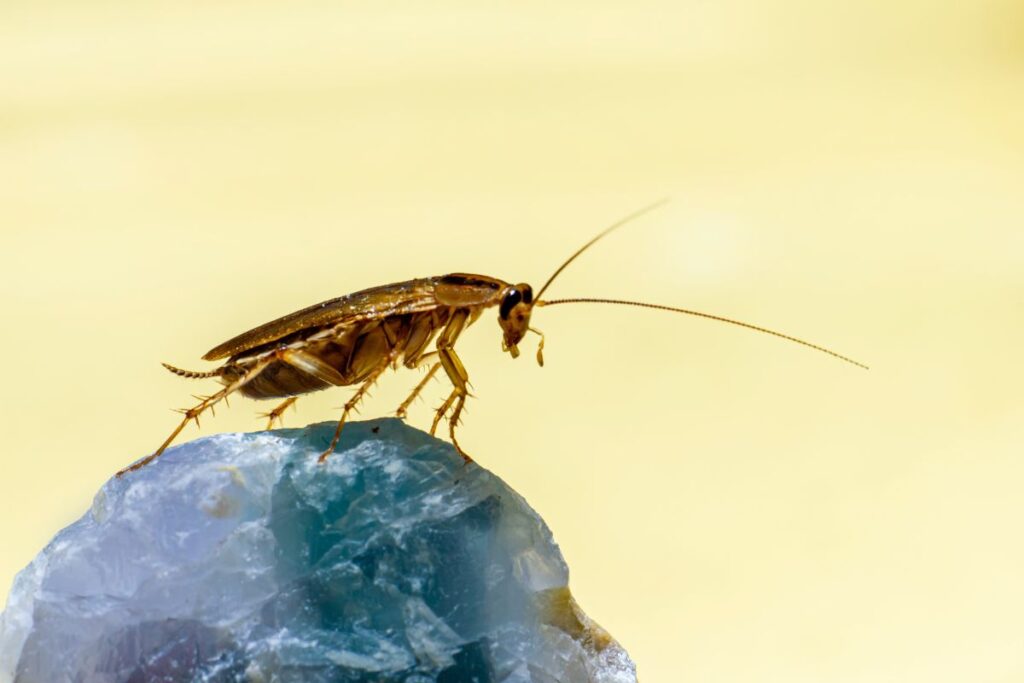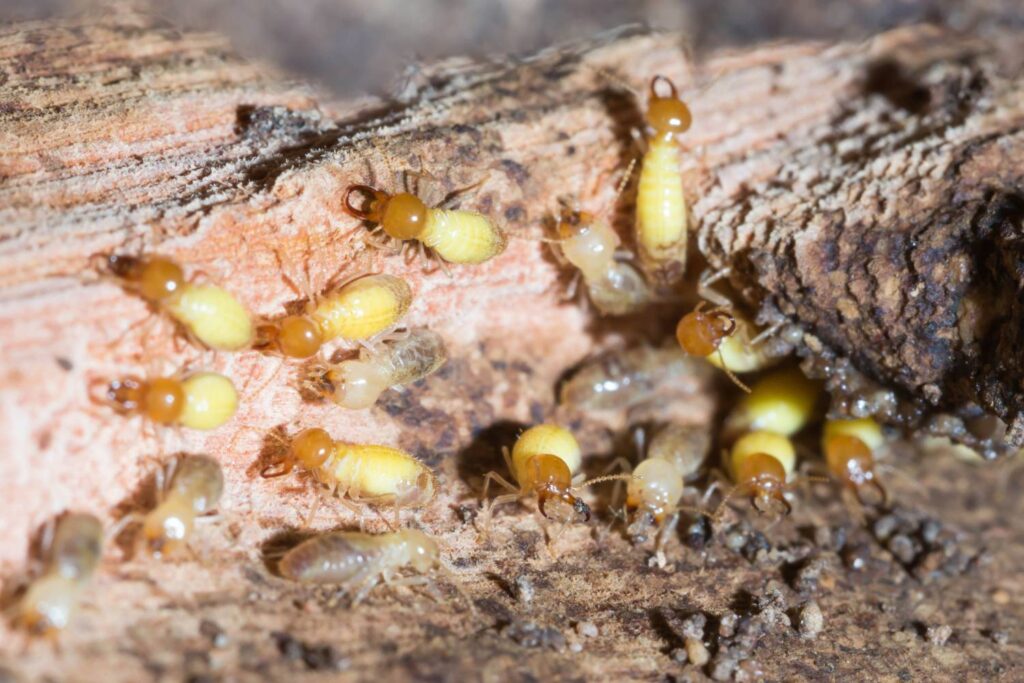We want to take this opportunity to welcome you to our most recent investigation into the exciting field of natural pest treatment, with a particular emphasis on termites, a familiar enemy of homeowners worldwide. These tiny but hazardous bugs can stealthily impair the structural integrity of our homes, which can result in expensive repairs and significant damage.
Despite this, nature provides us with a wide range of fragrant solutions that can assist in warding off these unpleasant visitors. We dig into the odours that termites find offensive in this blog post titled "What Smell Do Termites Hate?" and provide you with effective and environmentally safe techniques for protecting your house.
Using essential oils and other home goods, you will learn how specific odours can be vital to your termite protection toolset. Attend this discussion with us as we investigate the olfactory aversions of termites and discuss how you can use this information to keep your house secure and free of termites.
The Power Of Scents In Pest Control
Pest control extends beyond the mere application of chemicals and physical barriers; it delves into the nuanced world of scents and their profound impact on deterring pests. This exploration into the power of scents in pest control unveils a natural, often overlooked strategy that leverages pests' keen olfactory senses against them.
From the subtle whiffs of our daily lives to the potent aromas of nature's bounty, scents play a pivotal role in either attracting or repelling pests, including notoriously destructive termites.
Pests, much like humans, navigate their world through senses, with smell playing a crucial role in their survival. Their sophisticated olfactory systems guide them to food sources, potential mates, and nesting sites. However, this reliance on smell also presents a unique vulnerability that can be exploited in pest control strategies. By understanding the specific scents that pests find repulsive, we can create less inviting environments, thereby preventing infestations before they begin.
Natural Scents That Termites Despise
Research and anecdotal evidence have highlighted several effective natural scents in repelling termites. These include:
- Clove Oil: Known for its strong, pungent aroma, it disrupts termite pheromone signals, making it difficult for them to communicate and navigate.
- Orange Oil: Contains D-limonene, a compound toxic to termites upon direct contact, making it a natural termite repellent.
- Neem Oil: Acts as a natural deterrent for termites, affecting their feeding, growth, and reproduction.
- Tea Tree Oil's potent scent and terpenes repel termites and other pests.
- Eucalyptus Oil: The intense aroma and cineole content make it unappealing to termites.
Implementing Scent-Based Termite Prevention
Incorporating these natural scents into your pest control strategy involves more than sporadic application. Consistency and strategic placement are crucial to creating an effective scent barrier around your property. Consider diffusing these oils in areas prone to termite activity, applying them near entry points, and integrating them into regular cleaning routines to maintain a termite-repellent environment.
Limitations And Considerations
While using scents as a termite deterrent offers an eco-friendly and non-toxic alternative to chemical treatments, it is not a standalone solution. The complexity of termite behaviour and the potential for significant, hidden infestations require a comprehensive approach to termite control. This includes professional inspections, physical barriers, and, when necessary, targeted chemical treatments to address existing infestations.
Essential Oils That Termites Despise
In the quest to protect our homes from the silent but destructive force of termites, nature offers a potent arsenal of essential oils. These natural extracts, known for their aromatic properties, also possess powerful termite-repelling abilities. Drawing insights from various studies and expert recommendations, we uncover the essential oils termites find particularly offensive and how to use them to safeguard your home.
Tea Tree Oil
Tea tree oil, derived from the Melaleuca alternifolia tree native to Australia, is celebrated for its therapeutic properties and effectiveness in repelling termites. Its strong scent and terpenoid content make it an unwelcome aroma for termites, providing a natural barrier against these pests.
Neem Oil
Neem oil, extracted from the seeds of the neem tree, is renowned for its insecticidal properties. It interferes with termite life cycles, preventing them from feeding, growing, and reproducing. Neem oil is a natural barrier, protecting your home from termite invasion.
Orange Oil
Orange oil contains D-limonene, a compound lethal to termites upon contact. Its citrus scent is pleasant to humans and acts as an effective repellent against termites. Applying orange oil in areas prone to termite activity can help prevent infestations.
Peppermint Oil
With its robust and minty aroma, Peppermint oil is another natural deterrent for termites. The menthol in peppermint oil is particularly unsettling for termites, making it an excellent choice for creating a termite-repellent environment around your home.
Cedarwood Oil
Cedarwood oil, derived from various cedar trees, contains compounds that termites find repulsive. Its woody scent adds a pleasant aroma to your home and is a natural defence mechanism against termite intrusion.
Lemongrass Oil
Lemongrass oil, known for its bright, citrusy scent, is effective in repelling termites. Lemongrass oil's citral and geraniol components are toxic to termites, providing a natural means to protect your home from these destructive pests.
Application Tips
- Dilution: Essential oils should be diluted with a carrier oil or water before application to prevent damage to treated surfaces.
- Spray Application: Use a spray bottle to apply the diluted essential oil solution to areas prone to termite activity, such as around the foundation, windows, and door frames.
- Regular Reapplication: Essential oils evaporate over time, so regular reapplication is necessary to maintain their repellent effect.
- Integrated Pest Management: While essential oils can deter termites, they should be part of an integrated pest management approach that includes professional inspections and treatments if necessary.
Household Items And Natural Smells Termites Avoid
In the battle against termites, homeowners have an arsenal of natural and household items that can serve as effective deterrents against these destructive pests.
Utilizing the scents that termites despise, you can create a protective barrier around your home without resorting to harsh chemicals. Here's a compilation of the most effective natural smells and household items that termites avoid, gathered from various expert sources.
Garlic
Garlic's pungent aroma is not just for warding off vampires but also termites. Its strong scent is a natural insect repellent, making it an excellent choice for termite prevention. Planting garlic around your garden or using garlic oil can help keep these pests at bay.
Clove Oil
Clove oil, known for its spicy aroma, possesses powerful fumigant properties that termites find intolerable. Its main component, eugenol, is particularly effective in repelling termites. Applying clove oil around areas prone to termite activity can be a natural deterrent.
Lemongrass
The citrusy scent of lemongrass is delightful to humans but detestable to termites. Growing lemongrass in your garden adds beauty and acts as a natural repellent against termites, keeping them away from your property.
Neem Oil
Neem oil, extracted from the neem tree, is a well-known natural pesticide with a strong odour that termites dislike. Spraying neem oil around your home can discourage termites from entering and infesting your space.
Vinegar
Vinegar's acidic nature makes it an effective termite repellent. A solution of vinegar and water can be sprayed in areas where termites are suspected to deter them from the area. The pungent smell of vinegar is enough to keep termites at a distance.
Cayenne Pepper
The capsaicin in cayenne pepper gives it heat and acts as a natural termite repellent. Sprinkling cayenne pepper or spraying a solution around your home can help drive termites away.
Diatomaceous Earth
While not a scent, diatomaceous earth is a powdery substance that can effectively kill termites on contact. Sprinkling diatomaceous earth around your home's foundation and other entry points can be a barrier against termites.
Boric Acid
Boric acid, another non-scented but highly effective termite deterrent, can create a protective barrier around your home. Sprinkling boric acid or using it in bait stations can help prevent termite infestations.
Application Tips:
Direct Application: Apply oils, vinegar, or powders directly to areas where termites are likely to enter or have been spotted.
Regular Reapplication: Natural repellents may need to be reapplied regularly to maintain effectiveness.
Comprehensive Approach: Use these natural deterrents as part of a comprehensive termite prevention strategy, including regular inspections and professional treatments if necessary.
Integrating Smell-Based Strategies With Other Termite Control Measures
The battle against termites, particularly the invasive Formosan subterranean termite, has prompted the development of integrated pest management (IPM) strategies that combine cultural, biological, chemical, and physical methods.
Leveraging the power of scents as a natural deterrent offers a promising avenue for termite control. This approach aligns with environmentally responsible pest management practices and enhances the efficacy of traditional termite control measures.
Understanding Termite Communication
Termites heavily rely on chemical signals for navigation, colony coordination, and survival. Disrupting these chemical cues by introducing specific scents that termites find repulsive can significantly impact their ability to function as a colony.
Research into the olfactory system of termites sheds light on how these pests detect and respond to their chemical environment, offering insights into new control methods that exploit their reliance on smell.
The Role Of Essential Oils And Citrus Scents
Studies have identified several essential oils, such as cedarwood, vetiver, clove, and citrus-based scents, as effective termite repellents. With their aromatic solid potency, these oils can interfere with termites' chemical communication, deterring them from infested areas. Implementing these scents around potential entry points and areas of termite activity can serve as a first line of defence, reducing the likelihood of infestation.
Integration With Ipm Strategies
Integrating smell-based strategies within a broader IPM framework enhances termite control efforts. For instance, alongside the use of repellent scents, physical barriers and mechanical alterations to the home can prevent termite intrusion.
Biological control agents, such as beneficial nematodes, can target termite populations without disrupting the ecosystem. When necessary, chemical treatments can be applied more judiciously, focusing on areas where termites are most active, thereby minimizing environmental impact.
Practical Implementation
Homeowners can adopt simple, practical measures to incorporate smell-based deterrents into their termite management plan. Creating DIY repellents from citrus peels or applying neem oil around the home are cost-effective strategies that complement professional termite treatments. Maintaining a landscape that includes cypress mulching and preserving pine trees can also leverage natural scents to deter termites.
Future Directions
Ongoing research into termite behaviour and chemical communication holds the promise of developing more targeted and environmentally friendly control methods. By understanding the specific chemical cues that influence termite activity, pest management professionals can devise strategies that disrupt the
Conclusion
This blog post explores the power of scents in pest control, explicitly focusing on termites. Termites are known to be aggressive and can damage homes, leading to expensive repairs and significant damage. However, nature offers various fragrant solutions that can help repel them. Essential oils and other home goods can be vital components of termite protection toolsets.
Some natural scents that termites dislike include clove oil, orange oil, neem oil, tea tree oil, and eucalyptus oil. Clove oil disrupts termite pheromone signals, while orange oil contains D-limonene, a toxic compound to termites, upon direct contact. Neem oil is a natural deterrent for termites, affecting their feeding, growth, and reproduction. With its strong scent and terpenes, tea tree oil is effective in repelling termites and other pests. Eucalyptus oil has a strong aroma and cineole content, making it unappealing to termites.
Implementing scent-based termite prevention involves consistency and strategic placement, such as diffusing these oils in areas prone to termite activity, applying them near entry points, and integrating them into regular cleaning routines. However, scents alone are not a standalone solution, as the complexity of termite behaviour and the potential for significant, hidden infestations require a comprehensive approach.
Essential oils like tea tree oil, neem oil, orange oil, peppermint oil, cedarwood oil, and lemongrass oil can protect homes from termites. Application tips include dilution, spray application, regular reapplication, and an integrated pest management approach that includes professional inspections and treatments if necessary.
Termites are destructive pests that can be effectively deterred using natural and household items. Some compelling natural smells and household items that termites avoid include garlic, clove oil, lemongrass, neem oil, vinegar, cayenne pepper, diatomaceous earth, and boric acid. Garlic's pungent aroma is a natural insect repellent, while clove oil's spicy aroma and eugenol are particularly effective.
Lemongrass's citrusy scent is also detestable to termites, while neem oil is a well-known natural pesticide with a strong odour that termites dislike. Vinegar's acidic nature makes it an effective termite repellent and cayenne pepper's capsaicin also acts as a natural termite repellent. Diatomaceous earth, a powdery substance, can kill termites on contact, and boric acid can create a protective barrier around the home.
Integrating smell-based strategies with other termite control measures, such as physical barriers and mechanical alterations, can enhance termite control efforts. Biological control agents can target termite populations without disrupting the ecosystem, while chemical treatments can be applied more judiciously, focusing on areas where termites are most active.
Applying smell-based deterrents can include creating DIY repellents from citrus peels or applying neem oil around the home. Future research into termite behaviour and chemical communication holds the promise of developing more targeted and environmentally friendly control methods.
Content Summary
- Termites, known as "silent destroyers," can significantly damage homes, leading to costly repairs.
- Nature offers a variety of fragrant solutions to deter these pests effectively and safely.
- This blog explores odours that repel termites and how to use them for home protection.
- Essential oils and household items can be vital components of a termite prevention toolkit.
- The power of scents plays a crucial role in pest control, leveraging pests' olfactory senses.
- Specific scents that pests find repulsive can create less inviting environments, preventing infestations.
- Clove oil disrupts termite pheromone signals, making it difficult for them to communicate.
- Orange oil contains D-limonene, which is toxic to termites and is a natural repellent.
- Neem oil is a deterrent, affecting termites' feeding, growth, and reproduction.
- Tea tree oil's potent scent and terpenes repel termites and other pests.
- Eucalyptus oil's pungent aroma and cineole content make it unappealing to termites.
- Consistency and strategic placement of these oils are vital to creating an effective scent barrier.
- While scents offer an eco-friendly deterrent, they are not a standalone solution for termite control.
- A comprehensive approach, including professional inspections and treatments, is necessary.
- Tea tree oil provides a natural barrier against pests with its strong scent and terpenoid content.
- Neem oil, with its insecticidal properties, protects homes from termite invasion.
- Orange oil's citrus scent acts as an effective repellent against termites.
- Peppermint oil's minty aroma serves as a natural deterrent for termites.
- Cedarwood oil contains compounds that repel termites, adding a pleasant aroma to homes.
- Lemongrass oil's citrusy scent is effective in repelling termites.
- Essential oils should be diluted before application to prevent damage to surfaces.
- Spray application and regular reapplication are necessary to maintain the repellent effect.
- Integrated pest management approaches enhance the effectiveness of essential oils in termite control.
- Garlic's strong scent is a natural insect repellent, ideal for termite prevention.
- Clove oil's spicy aroma and eugenol component effectively repel termites.
- Lemongrass adds beauty to gardens while acting as a natural termite repellent.
- Vinegar's acidic nature makes it an effective termite repellent.
- Cayenne pepper's capsaicin acts as a natural termite repellent.
- Diatomaceous earth kills termites on contact, acting as a barrier against infestations.
- Boric acid creates a protective barrier around homes, preventing termite invasions.
- Direct application of oils, vinegar, or powders is crucial for effective termite deterrence.
- Regular reapplication of natural repellents is necessary to maintain their effectiveness.
- A comprehensive termite prevention strategy includes regular inspections and professional treatments.
- Integrating smell-based strategies with IPM enhances traditional termite control measures.
- Termites rely on chemical signals for survival, making them vulnerable to scent-based deterrents.
- Essential oils and citrus scents can interfere with termites' chemical communication.
- Implementing repellent scents around potential entry points reduces the likelihood of termite infestation.
- Physical barriers and mechanical alterations to homes can prevent termite intrusion.
- Biological control agents target termite populations without disrupting the ecosystem.
- Chemical treatments should focus on areas where termites are most active, minimizing environmental impact.
- Homeowners can create DIY repellents from citrus peels or apply neem oil as cost-effective strategies.
- Maintaining a landscape with cypress mulching and preserving pine trees leverages natural scents against termites.
- Ongoing research into termite behaviour and chemical communication promises more targeted control methods.
- Understanding specific chemical cues influencing termite activity can lead to disruptive strategies.
- The blog emphasizes using natural scents in a broader termite control strategy.
- The effectiveness of scent-based termite prevention relies on understanding termite olfactory preferences.
- Future directions in termite control may focus on exploiting termites' reliance on smell for more sustainable solutions.
- Integrating smell-based strategies with IPM offers a holistic approach to termite management.
- By combining natural deterrents with traditional control methods, homeowners can protect their properties more effectively.
- Exploring termites' olfactory aversions provides valuable insights into natural, environmentally friendly pest control options.
Frequently Asked Questions
Research and anecdotal evidence suggest that certain smells, particularly those from specific essential oils and natural substances, can effectively repel termites. These smells interfere with termites' ability to navigate and communicate, making them an effective deterrent.
Termites are known to dislike the smells of clove, orange, neem, tea tree, eucalyptus, peppermint, cedarwood, and lemongrass essential oils. These essential oils contain compounds that termites find repulsive.
Clove oil contains eugenol, a compound that disrupts the pheromone signals termites use for communication and navigation. This makes it difficult for them to coordinate and survive in treated areas.
Orange oil contains D-limonene, which is toxic to termites upon direct contact. It is particularly effective against dry wood termites, but it can deter other termite species when applied correctly.
Neem oil is a natural deterrent that affects termites' feeding, growth, and reproduction. It can be a preventive strategy to protect your home from termite infestations.

